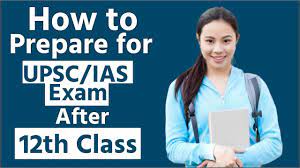The IAS test requires a minimum educational qualification of graduation. A degree from a university recognized by the government is required to sit for UPSC's IAS exam. So you'll start studying for the IAS exam just after you graduate? Certainly not! You should begin your IAS preparation immediately if you have just completed your studies and are certain that you wish to serve the nation as an IAS/IPS officer. You don't need a degree or to be 21 to start.
If you want to be a civil servant, you should start studying after the 12th grade. If you begin your IAS preparation early, you have a better chance of passing the IAS exam and beginning your civil service career early. This will take you a long way in your career, and depending on your calibre, you may even become the Cabinet Secretary (the highest UPSC office in India). The question now is, "What is the strategy for IAS preparation after the 12th?" This post will give you some pointers on how to prepare for UPSC after 12th grade.
What should you do to get ready for the IAS exam once you finish 12th?
- Study about the civil service. Learn about the duties of a diplomat or government worker. Talk to an IAS officer if you can to get firsthand information on the situation on the ground.
- Take a graduate course in politics and history. The UPSC syllabus places a great deal of emphasis on these areas.
- Study these subjects thoroughly while completing your degree while keeping in mind the UPSC syllabus.
- You can choose one of these disciplines as an optional subject if you achieve a certain degree of expertise in it. (Check the UPSC optional topic success rate.)
- start reading about economics, public administration, etc. Depending on your interests and abilities, you might even choose to study these subjects as your major.
- Keep up with the fundamental math skills you mastered in school. This is required for the IAS Prelims CSAT paper. Learn more about the IAS test format.
- Remember to study like an IAS candidate and not a college student who is skipping class. (Get ideas from IAS Toppers from past years.)
- Utilise the library in your college. Read as many books as you can that are relevant.
- Develop the habit of reading the daily newspaper to stay current on national and international events. (You may use Daily News Analysis to prepare for current events.)
- Improve your communication and interpersonal abilities. Try to cultivate a positive personality so it will benefit you when you go for the IAS interview.
- Your school's NCERT textbooks shouldn't be thrown away. These are the fundamental textbooks for the UPSC test.
- Start taking notes after learning how to do so. (Read the linked article to learn how to take notes for the UPSC.)
- Practise IAS question papers from past years.
IAS current affairs must receive adequate attention whenever someone decides to begin their UPSC test preparation. Candidate knowledge of international trends may be maintained by keeping up with important global occurrences.
When a candidate decides to begin their study as soon as the class 12th examinations are over, they have plenty of time to comprehend and evaluate the paper's format and standard. They learn about the specifics of the IAS Interview, which is an important component of the hiring process. Visit www.upscnetwork.com if you're searching for further information, study aids, and advice for the UPSC CSE.

